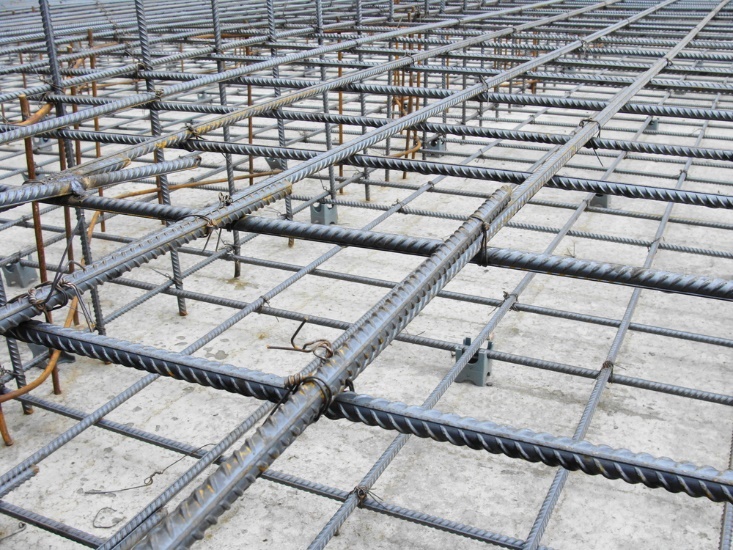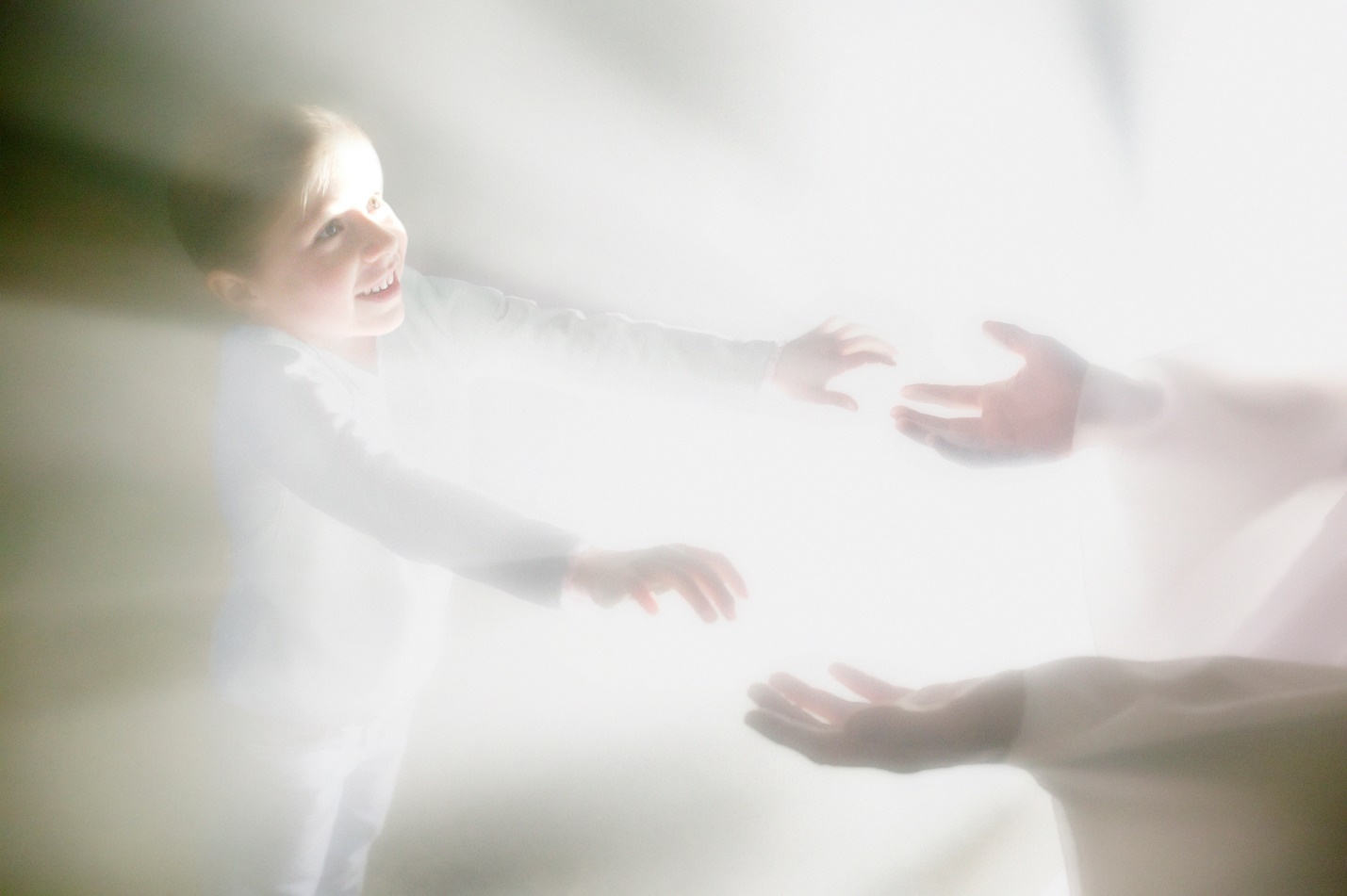BP30
There are two types of anxiety, type A and type B. Type A is plain old Average Anxiety (AA). Type B is Break-Through Anxiety (BTA). It’s called BTA because it breaks through all psychological defenses and takes its victim hostage.
(It may not be ideal to think of anxiety as two discrete boxes—it might be better represented on a spectrum from A to Z. For the purpose of this post, however, bear with me as I use discrete categories to discriminate between Average Anxiety and Break-Through Anxiety.)
AA gives you butterflies. BTA is a school of piranhas ripping their way through your skin—from the inside out. The problem is that they never get out.

AA is feeling edgy and jittery. BTA is sitting in the electric chair when the current is switched on and your body jerks and contorts like a rag doll in a wind tunnel.
AA might cause shortness of breath. BTA wraps steel bands around your diaphragm and you become so light-headed you know you’re going to pass out.
AA tells you that the pain in your chest might be heart palpitations. BTA convinces you that you’re experiencing a major cardiac episode and will drop dead in seconds.
AA is a police detective questioning you in the interrogation room. BTA is being tortured by an antisocial personality who assaults you with battery acid, a blowtorch, and a razor blade under your fingernails.
Another way to say it is that Average Anxiety pounds against the breakwater of your mind but does not overwhelm it. Break-Through Anxiety explodes through the barricade of your psychological defenses like a massive flood obliterating a feeble dam or an invading army blowing a gaping hole in a wall to capture the city.
Why compare these two varieties of anxiety? For one reason, to understand the difference between the two so the correct treatment can be administered. For another, to have deep mercy on those whose anxiety crushes down on them like the bone-breaking jaw of a monster crocodile rendering them powerless, defeated.
If you’ve never been indwelt by BTA, you have no idea what it’s like.
Why is BTA so powerful? Because it’s not simply a fleeting situational anxiety. BTA makes its host a hostage to its unrelenting agony day and night.
We won’t discuss it here, but a fair question is the following: Does the BTA cause the damage to its host or does the BTA appear as a symptom of a self that is already compromised and vulnerable? Both could be true although I usually lean toward the latter explanation.
Let’s take a look at the self that might be vulnerable to BTA.
Think about concrete with me for a moment. As you may know, contractors often lay down rebar before they pour concrete on a driveway, sidewalk or highway. So, what is rebar anyway? It’s steel bars that are used to strengthen the integrity of cement.

Your driveway will invariably develop small cracks over time, especially if heavy vehicles drive on it and park on it. If a concrete mason does not lay down rebar in your driveway before the cement is poured, these smaller cracks will eventually lead to bigger problems.
When rebar is laid down, however, these steel bars serve to strengthen your concrete and hold it together even when it is placed under the stress of great weight. Concrete without rebar is much more vulnerable to breakdown and disintegration.
One other factor to note is that rebar comes in different sizes or strengths. It can be as fragile as a wire mesh, or it may be over 2” in diameter. Of course, the larger the diameter of the intersecting bars, the stronger the rebar and so the more resilient your driveway will be.
So, what do concrete and rebar have to do with the self that is susceptible to Break-Through Anxiety?
Let’s compare your driveway with your inside self–your personality, your soul, your ego.
Psychologists often refer to the strength of a patient’s ego. They view the self on a spectrum from prone to disintegration (weak and fragile) on one end to being cohesive (sticking together, strong) on the other end. Just as steel rebar holds concrete together so that it is stronger and not prone to fracture and disintegration, so there is something within the human personality that holds it together even under great stress.
Not all people hold together very well psychologically. They experience fragmentation. As we saw above, the size of rebar laid down beneath the concrete will vary from one driveway to the next. Sometimes, there is no rebar at all. In a similar way, one individual may have a flimsy maze of psychological rebar beneath their exterior persona instead of rods of steel, while someone else may barely have any rebar at all.
Just as driveways differ in strength, so do human personalities.
One way to picture the human self is like Swiss cheese: personalities typically have some cohesive structure within them but there are always random holes where there is only very thin psychological rebar or no rebar at all. While we all have areas of strength and weakness within our selfs, some people have egos that are more prone to disintegration and therefore are more vulnerable to something like BTA.
But what determines how much psychological rebar you have in your personality and how thick it is?

There are so many factors to consider–innate personality/resiliency, learned coping skills (like avoiding conflict or suppressing strong emotions), disturbances coming from the physical body or brain, insults from outside the self like frequent moves along with school changes, death or fragility of a parent, birth order, being an only child or one of many siblings, abuse, peer interactions, spiritual opposition, consequences of sinful choices, knowing God and practicing the Presence of God—and these do not represent an exhaustive list.
Since DTFL believes that God’s creation is anchored in the power of relationships, a huge factor in the development of any given personality is the impact other people have on the growing child.
The discussion regarding the impact of other personalities on the child’s psychological rebar is tricky because it may appear that parents are being blamed for weak or absent rebar in the child. Not true. Why?
Certainly, other people–especially parents—have a major influence on the child’s life by what they do and by what they don’t do. However, we must also remember that the child has some influence over how he copes with the actions and attitudes of the people around him even though, in comparison, his power is small and his options are limited.
Ultimately, no matter what comes at him from the outside world, the child is responsible for how he responds—maybe not so much at age four but certainly by the time he is sixteen.
Make no mistake, children are capable of cultivating in the small greenhouses of their heart things like deep rage, bitterness and even murderous wishes—sometimes even against the parent. Children’s thoughts can be primitive and their emotions primal. They experience the world through a black and white filter. Even younger children demonstrate that they are the offspring of Adam and Eve, born broken and capable of dark thoughts and actions.
As the child becomes a separate self with increased self-awareness, she develops an ability to choose hiding, hate, and self-sufficiency on the one hand, or trust, forgiveness, and love on the other.
So, what do we know so far? Both the behaviors of those outside the child as well as the child’s own inner emotional reactions and beliefs about reality will impact the development of psychological rebar for good or for ill. An unpredictable, raging, shaming, cold, anxious, depressed, absent parent will impact the resilience of the child’s rebar negatively, but so will the child’s rage, withdrawal and independence growing out of fear and bitterness.
Like I said, it’s tricky. We don’t want to blame the parent, but parents need to be highly accountable for their actions toward a fragile being. We want to protect the child as a first priority but also keep in mind that the child is never a totally passive and innocent recipient of the outside world. Even a two-year-old is capable of possessing a separate self.
The fundamental question related to a parent’s sinful behaviors and attitudes against the child is whether they flow primarily from immaturity or from evil.

Another factor involved in the impact of other people on the child’s developing self is the reality that children often are good observers of their environment but not always good interpreters. Often, children perceive things in their world that simply aren’t true or that aren’t as big and scary as they think. However, when you’re a young child, everything in the world is magnified x 10.
Never underestimate the power of perception. Clearly, we all read reality through the filter of our own spectacles, and that filter is never totally objective. That’s why it’s critical to have the Holy Spirit living in our hearts to guide us into the truth about ourselves and others.
For example, one universal truth for the developing child/adult is this: You may not be responsible for being down, but you are responsible for getting up. Even if you’ve been victimized, God did not create you to embrace the identity of being a victim.
In this discussion of the child’s psychological rebar, it’s always sad when the child must alter her God-given self in order to survive in her environment. Adaptation due to the parents’ needs, fragility, immaturity or evil often interrupts the formation of the child’s self. It’s one thing to be obedient to the parent. It’s quite another when the child must cultivate a self-killing compliance that flows out of fear and even terror.
When the child’s self-shifting is extensive, the self often grows up too fast on the outside (possibly due to propping up the ego of a fragile parent—a situation where the child becomes the caregiver) while on the inside the self remains quite immature. A person may be thirty-six years old chronologically while largely remaining nine emotionally.
Some individuals may show pockets of immaturity like in the earlier swiss cheese metaphor, while others may exhibit a global immaturity that shows up in any number of ways usually during stress or conflict (when a heavy dump truck parks on their concrete driveway). It’s during one of these stressful episodes when Break-Through Anxiety may first appear—often between the ages of seventeen and twenty-six when younger personalities in transition are more vulnerable to breakdown.
What happens inside a child when she must find a way to adapt to a mentally ill, addicted, fragile or abusive parent?
Self-awareness and expression of emotions is compromised.
The child is less aware of the internal self because she must be aware of the external world, namely, the parent’s mood, needs, fragility, shame, anger, abuse, etc. The child is less self-aware because she exists to care for the unpredictable parent, instead of the parent taking care of her. The child’s best opportunity to receive approval and love is when she comforts, encourages or simply pays close attention to the fragile parent.

We’re talking here about something more extensive than simply not being aware of or expressing emotions. It’s about the child’s profound distrust in his caregivers. It’s about not being seen or comforted. It’s about the danger of being a real self around big people who are capable of countenancing only severely muted personalities or mannequins that have no life in them.
Hiding often occurs, resulting in the unhealthy Leakage of the self as opposed to the free expression of the self through the Well (see past blog post).
What is a symptom of a child who had to survive his environment?
One symptom that often shows up in adulthood is loving others for what they do for you instead of for who they are because you missed and therefore are so hungry for experiences of Presence and affirmation that you almost become giddy when you finally receive it. The hungry-child-turned-adult may not be aware of it, but he might reprise the role of the needy parent he had to take care of as a child.
Someone described it as mirror hunger: being invisible as a child leads to performing as an adult to receive praise. Sometimes it is here that we encounter the tap root of narcissism.
The child might also discover that she is affirmed for being good, not for being herself. Accordingly, she may develop a false self that receives high praise from others for being very responsible and mature.
Parents may never in a million years wish to communicate to the child that she must be nice to be loved. However, they may subtly betray that they value peacekeeping (maybe because the parents hate the conflict and anger from their own past) and not being angry more than they value the child’s messy emotional true self.

The child might also perceive that the only way to rise high enough to capture the immature parent’s attention is through excellence of achievement. Accordingly, the child might develop a compensatory self that strives amazingly hard to be the best musician, vocalist, athlete, academic, actor, pastor or model at great cost to the growth of his true self.
Parents may even unwittingly teach the child that God is someone who wants them to be good over being holy. Even Christianity, then, tragically becomes a personal performance and not about God crediting righteousness to the child through faith.
In summary, when a child’s developing self must accommodate in major ways to the parent’s self, his personality will often not develop strong psychological rebar. He will be pleasing instead of assertive. He will take care of people instead of setting boundaries with them. He will fear conflict and so become a peacekeeper instead of a peacemaker.
The child will not have permission to live out the true axiom: Your no must be no before your yes can be yes.
Instead of loving people, he will learn to use them to feed his affirmation-starved self.
He will become who everybody needs him to be, changing personas on the fly.
One of the unspoken rules in his head will be that he can never hurt anybody.
A lie that reverberates in his heart might be that his true self has bad power to hurt others (his fragile mother and angry father) and so he must live out of the false self who is always nice and super responsible (or super irresponsible).
Such a child will not develop strong rebar and so will become a self subject to cracking and disintegration.
Pray that she doesn’t meet a dominating, manipulative personality, because she will. Pray that he doesn’t end up with a critical, controlling personality, because he will.
When a person can set no boundaries, everything gets in. When the child’s true self triggers the volatile parent, it must be sent to the dungeon where it will languish in silence and deep isolation, never to be seen, never to grow. When emotions and needs are dangerous to the fragile parent, the child must suppress them.
Powerless, living out of a false self, hiding and alone—this personality will have little rebar and will be vulnerable to Break-Through Anxiety. When there are no strong walls around the city, nothing can be kept out. Everything gets in. You never sleep well because you worry about what might sneak in while you’re sleeping (or even what might sneak out.)

When BTA sneaks in, you may experience some of the following symptoms (and others): difficulty swallowing, tight muscles in your stomach and shoulders, tingling in your fingers, a paralyzing somatic preoccupation that you have cancer, a heart condition, Parkinson’s, etc., shortness of breath, a rapid pulse, a dry mouth, panic attacks in the daytime and possibly even at night, clammy hands, a sense of doom, inability to be in public places like restaurants, malls and church, and for some, the dreaded electric shock that jolts the brain and body like a lightening bolt.
So, what are you to do if these symptoms describe you? Definitely seek professional help from someone who will help you build up the rebar in your soul. You may even require the assistance of a psychiatrist who can prescribe meds for a season while the scaffolding of a strong self is erected within you.
Remember that when God adopts us as His children, He rarely erases our past. We may have major unfinished business that needs deep attention and healing. Parts of us may be thirteen years old, or ten, or four and have lots of growing to do. A believer in Jesus may even have weaker rebar than some non-believers because their ego weakness might be what drove them to the Great Physician in the first place.
Having strong rebar isn’t the highest priority in life. It’s always better to have rebar the thickness of angel hair spaghetti and love Jesus than to boast about 2” rebar and trust only yourself. Jesus will grow you into a strong person in His way and in His timing even if the world sees you as insignificant and weak.
A comforting truth is that God never wastes our brokenness, our weakness. He always uses it for our growth. He uses it like a coach might use the weight room to prepare you for the gridiron, or the court or the mat or the pool or the pitch.
In the future, we may discuss the BTA that accompanies the fear of death/dying and the fear of being separated from God, the One who is our perfect rebar. Every human, even if under the magic spell of denial, is subject to that universal BTA until they are comforted by the Presence of Jesus. Sometime we may also consider the difference between healthy rebar and the rebar of stubbornness and rebellion.
For now, remember that a self with little rebar that is subject to Break-Through Anxiety might feel severe–as in a severe mercy. In our weakness, we will rely not on ourselves but on the One who holds the vast universe together with His power. We might even exult in our lack of strength because then we have no choice but to fall into the arms of Him who became weak so we might be strong and became sin so we might become righteousness.
1/8” wire rebar becomes indestructible steel cable when intertwined with the Almighty God we encounter in the Bible.

So, if you feel fragile and prone to disintegration, fret not. Jesus will lead you through the gauntlet of Break-Through Anxiety and bring you to a better place. He came to create a new self within you and then to grow you every day to increasingly become the person He intended from the beginning. Practice His Presence and His peace will inexorably crumble your anxiety.
It may be a long journey, but He will make you strong as you abide in His strength. Remember, it’s all about healing and growing in relationship with the loving God of the universe who made you and came for you.
To that truth, I bear personal testimony.
God, hear my cry; pay attention to my prayer. I call to you from the ends of the earth when my heart is without strength. Lead me to a rock that is high above me, for you have been a refuge for me, a strong tower in the face of the enemy. I will live in your tent forever and take refuge under the shelter of your wings ~ Psalm 61:1-4
